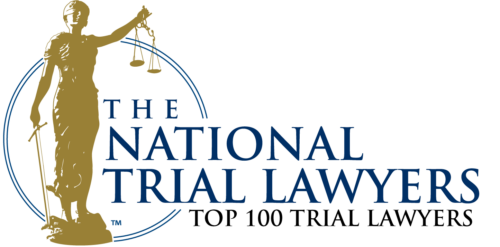Accounting for the loss of an entire person’s life is incredibly difficult and requires attention to detail. When receiving compensation in a wrongful death lawsuit, there are many areas of compensation, and tax laws apply differently to various portions of a wrongful death and survival action depending on the details of the compensation and what it was intended to cover.
Generally, damages paid specifically because of someone’s death or injury are not taxable. However, many of the damages that you get in a wrongful death suit and the related “survival action” will reimburse you for other things, such as emotional distress at losing a loved one or the wages that the loved one will no longer provide your family. Some of these areas of damages are taxable, but our lawyers will always account for the potential tax liabilities when structuring a settlement or determining how much to claim in your case.
Call our Philadelphia wrongful death lawyers at The Reiff Law Firm today for a free case review by dialing (215) 709-6940.
What Parts of a Wrongful Death Case Are Taxable in Pennsylvania?
As mentioned, damages that are considered “compensation for injuries or sickness” are usually not taxable under 26 CFR § 1.104-1 when it comes to federal tax law. Under this rule, there are a few exceptions that might result in taxes. Plus, there may be other areas of damages in your case that are taxable, but our Pennsylvania wrongful death lawyers will always take these issues into account when calculating damages in your case.
Prior Deductions
Wrongful death cases often claim damages for medical care and other expenses that might go back some time if your loved one lived for a while between the injury and their death. For example, if they suffered massive head trauma in a car crash and ended up in a coma for 6 months, there might be medical expenses from the prior calendar year that were claimed as deductions on their taxes. If they previously took a deduction on some expenses – such as hospital bills – then you ended up getting reimbursed for it, that reimbursement would now be taxed.
Emotional Distress
This regulation discussed above says that any money paid for injuries or sickness should be excluded from taxable income, but it also specifically says that “[e]motional distress is not” physical injury or sickness unless those damages are “attributable to” your injury or sickness. In a wrongful death claim, you often claim damages for your emotional distress at your loved one’s death, not your own injury, which might mean these damages are ultimately taxable.
This covers more than just “emotional distress” literally and might also allow tax on lost companionship, loss of consortium, or other “non-economic” damages in your case.
Reimbursement for Lost Wages
When you get paid, you usually pay tax on those wages. When you get reimbursed for lost wages, the tax is paid on those damages instead since the money is a replacement for that taxable income. In the case of a deceased loved one’s lost income being paid to your family, that might also be taxable.
Interest
On the day of the death or the date you pay for an expense related to your loved one’s death, the damages will have a specific value. Between the time that you made the expenditure and the day you were finally reimbursed for it through a wrongful death lawsuit, you can also potentially include a claim for interest on that unpaid amount. The portion of your damages attributed to interest might be taxable.
Punitive Damages
These damages are available in some cases where the defendant’s actions were reckless or intentional, such as in wrongful death cases based on murder, manslaughter, drunk driving, or other seriously dangerous actions. Because these damages are paid to punish the defendant and not to reimburse you for death/injury/illness, they are often taxable.
Taxing Survival Action Damages in Pennsylvania
When you file a wrongful death lawsuit, it reimburses your family for your own expenses related to the death, such as ongoing lost wages for your family and lost companionship damages. In addition, you often file a “survival action,” which covers the damages that your loved one would have been allowed to sue for if the accident had merely been an injury case instead of a death case. For example, this includes the victim’s lost wages and medical bills before death, plus their pain and suffering.
These damages are not paid directly to you as the surviving family but instead are paid into the victim’s estate along with their assets and everything else they owned in life. This then gets managed by their executor/personal representative as part of their will or under the Pennsylvania intestacy statute. This often means distributing this money, along with the rest of their estate, to a spouse and/or children or other family.
Some of the same rules discussed above – such as taxation on some emotional distress damages – might reduce how much gets paid into the estate in the first place. Additionally, estates are typically subject to some taxes. This might mean that before the money gets to you, it faces a tax, but that tax arises for separate reasons, not because of the wrongful death suit.
There may also be debts against the estate that need to be paid first before that money is distributed.
Reducing Taxes on Wrongful Death Claims in Pennsylvania
We can often make sure that the terms of your settlement or damage award include breakdowns as to what funds from the settlement cover which damages, making it easier to parse out any tax obligations. By ensuring that certain damages are accounted for in certain categories, we may also be able to reduce the taxes you end up paying. We can also potentially ask for higher damages to make sure that there is enough money in the settlement to account for the added tax payments you might face.
Additionally, one way to structure a settlement so that you do not face high taxes all at once is through an annuity. This way, your damages are paid to you over time rather than coming all at once, which might give you one year with much higher taxes.
Call Our Wrongful Death Lawyers in Pennsylvania Today
If you lost a loved one in an accident, call The Reiff Law Firm’s Allentown, PA wrongful death attorneys at (215) 709-6940 for a free case review today.
Related Posts
- How Dangerous are Airbags During Car Accidents in Pennsylvania?
- What is the Role of a Medical Expert in Pennsylvania Medical Malpractice Lawsuits?
- Why are There So Many Truck Tire Explosion Accidents?
- As Highway Speed Limits Creep Upward, Do Tire Blowout Risks?
- The Deadliest Limosuine Accident of All Time















